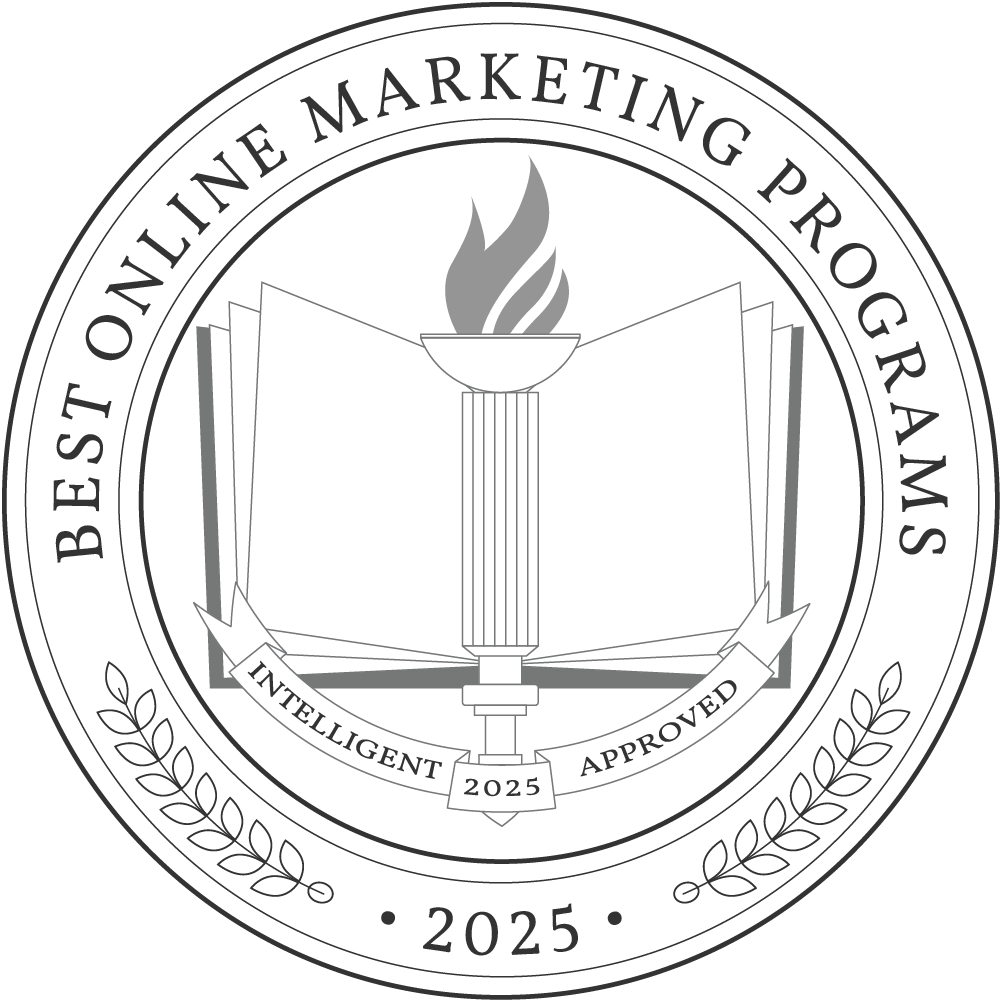Combining creativity with data-driven insights, online marketing programs provide an ideal training ground for students with a dual aptitude for generating exciting ideas and analyzing current trends. The convergence of these qualities isn’t coincidental; it’s strategic. As brands continue to clamor for consumer attention in traditional and digital arenas, the ability to craft compelling narratives and simultaneously understand consumer behavior patterns is invaluable.
That’s where online marketing degree programs come in. Intelligent.com compiled this list of the best online marketing programs at the graduate and undergraduate levels to make finding a high-quality, reputable program more accessible. The research team evaluated dozens of programs based on cost, faculty, rankings, and retention and graduation rates.
To provide expert advice, Michelle Pickett, the director of Northern Illinois University’s Academic Advising Center, has lent her perspective on the value of a marketing degree and what students should consider when applying to and attending online marketing programs.
What You Can Expect From an Online Marketing Degree Program
Online bachelor’s degrees in marketing are designed to prepare students for entry-level positions in advertising, promotions, sales, marketing, and more. Coursework and experiential learning components introduce students to foundational principles of marketing, including understanding consumer behavior, analyzing data and trends, and developing marketing strategies and campaigns in digital, print, and other mediums.
When selecting a degree program, marketing students have a few options, including a Bachelor of Arts (BA), Bachelor of Science (BS), Bachelor of Business Administration (BBA), and Bachelor of Science in Business Administration (BSBA). While these different degree types may have different curricular requirements and pedagogical approaches, all will provide students with the skills and expertise they need to enter the world as marketing professionals.
Online marketing programs are typically structured with a core curriculum of foundational courses in marketing and related business topics, followed by more advanced coursework focusing on specialized marketing topics. Concentrations within the marketing field include digital marketing, brand management, market research and analytics, retail and sales management, and international marketing.
Programs typically include an experiential learning component, such as an internship, to give students real-world marketing experience in a professional setting. Students in online programs should consult with a program representative to learn more about internship requirements, including whether they are expected to attend their internship in person.
Online programs usually offer both asynchronous and synchronous learning. Asynchronous learning provides flexibility, allowing students to access materials and complete assignments at their own pace. Synchronous learning involves real-time interaction, ideal for those seeking structured engagement and collaboration.
Potential courses you’ll take in an online marketing degree program
- Principles of Marketing: Introduces the structure and functions of the marketing system of the economy as well as the marketing practices of organizations. Topics include an examination of the environments of marketing decision-making, marketing institutions and agencies, and marketing practices of organizations.
- Marketing Management: Examines the application of marketing concepts and techniques to the solution of marketing problems, including product positioning, product and product line, price, channels of distribution, advertising, and personal selling.
- Consumer Analysis and Behavior: Teaches students how to analyze the personal, environmental, and interpersonal forces affecting consumer decisions and or their implications for marketing strategy development.
- Marketing Research: Studies the development and use of information for marketing decision-making research methods applied to problems of market segmentation, pricing, distribution, promotional strategy, and development of marketing strategies.
- Brand and Market Consulting: Examines the key tasks facing brand managers, including analyzing the marketing environment and developing objectives and strategies for the product or service, emphasizing marketing mix decisions concerning pricing, product, service, promotion, and distribution strategies.
Why Trust Us
The Intelligent.com Higher Education Team is dedicated to providing students with independent, equitable school and program rankings and well-researched resources. Our expert-driven articles cover topics related to online colleges and programs, paying for school, and career outlooks. We use data from the U.S. Department of Education’s College Scorecard, the National Center for Education Statistics, and other reputable educational and professional organizations. Our academic advisory team reviews content and verifies accuracy throughout the year for the most current information. Partnerships do not influence rankings or editorial decisions.
- Analyzed over 2,000 national, accredited, and nonprofit colleges and universities
- 800+ rankings pages are reviewed and updated yearly
- Content is informed by reputable sources, surveys, and interviews with academic advisors and other experts
- Over 100 data points are reviewed for accuracy and quality throughout the year, including sources
How we rank schools
Our list features the best online Marketing degree programs at top colleges nationwide. Each school featured is a nonprofit, accredited institution — either public or private — with a high standard of academic quality for post-secondary institutions.
We evaluated each school’s program on tuition costs, admission, retention and graduation rates, faculty, reputation, and the student resources provided for online students. We collected data from trusted sources like the National Center for Education Statistics, individual school and program websites, school admissions counselors, and other data sources. Then, we calculated the Intelligent Score on a scale of 0 to 100 based on the following criterion:
Academic Quality:
- Admission rate versus enrollment rate
- Retention rate of students who return after year one
- Accreditation status (regional and programmatic)
- Nonprofit status, both private and public institutions
Graduation Rate
- Overall graduation rate
- Total number of currently enrolled students, including diversity metrics
- Student-to-faculty ratio
Cost and ROI
- In-state and out-of-state per-credit tuition rates and fees
- Required credits to graduate
- Earning potential after graduation
- Availability of federal student loans, scholarships, and other financial aid options
Student Resources
- Available student services for online-only and hybrid programs
- On-campus amenities like tutoring centers and the number of libraries
Read more about our ranking methodology.
The Top 26 Online Marketing Degree Programs
FiltersInstitution Type
Status
- Intelligent Score
- Alphabetically By University Name
- Acceptance Rate
- Enrollment
- In-state Graduate Tuition
- Out-of-state Graduate Tuition
- In-state Undergraduate Tuition
- Out-of-state Undergraduate Tuition

Florida International University
Intelligent Score: 99.11In-state: $4,721
Out-of-state: $16,529
In-state: $8,912
Out-of-state: $8,912
SAT: 1110-1260
ACT: 23-29
In-State: $235
Out-of-State: $648
Online
Southern Association of Colleges and Schools Commission on Colleges
120
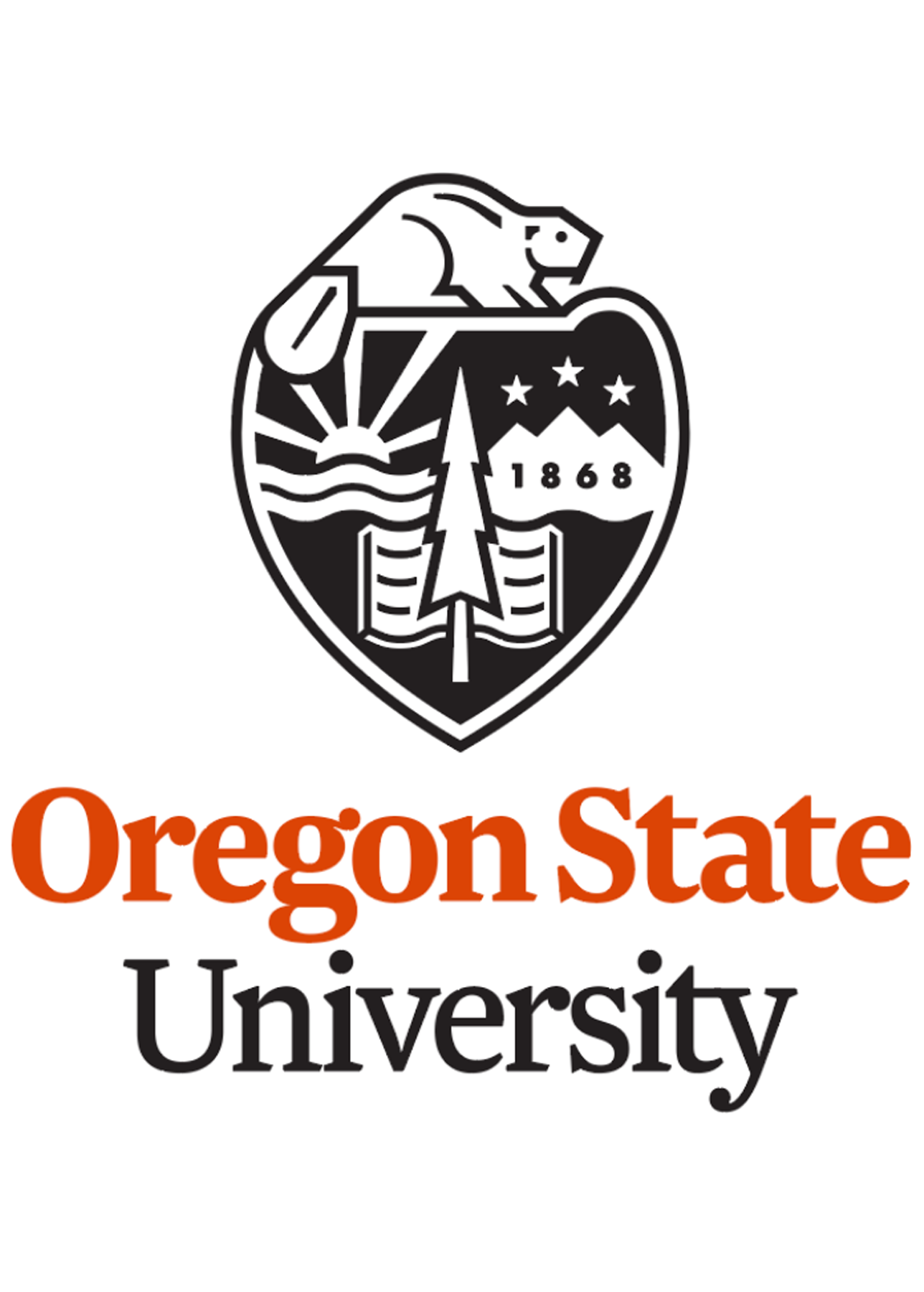
Oregon State University
Intelligent Score: 98.65In-state: $9,846
Out-of-state: $29,445
In-state: $13,257
Out-of-state: $13,257
SAT: 1080-1310
ACT: 21-29
$375
Online
Association to Advance Collegiate Schools of Business
180
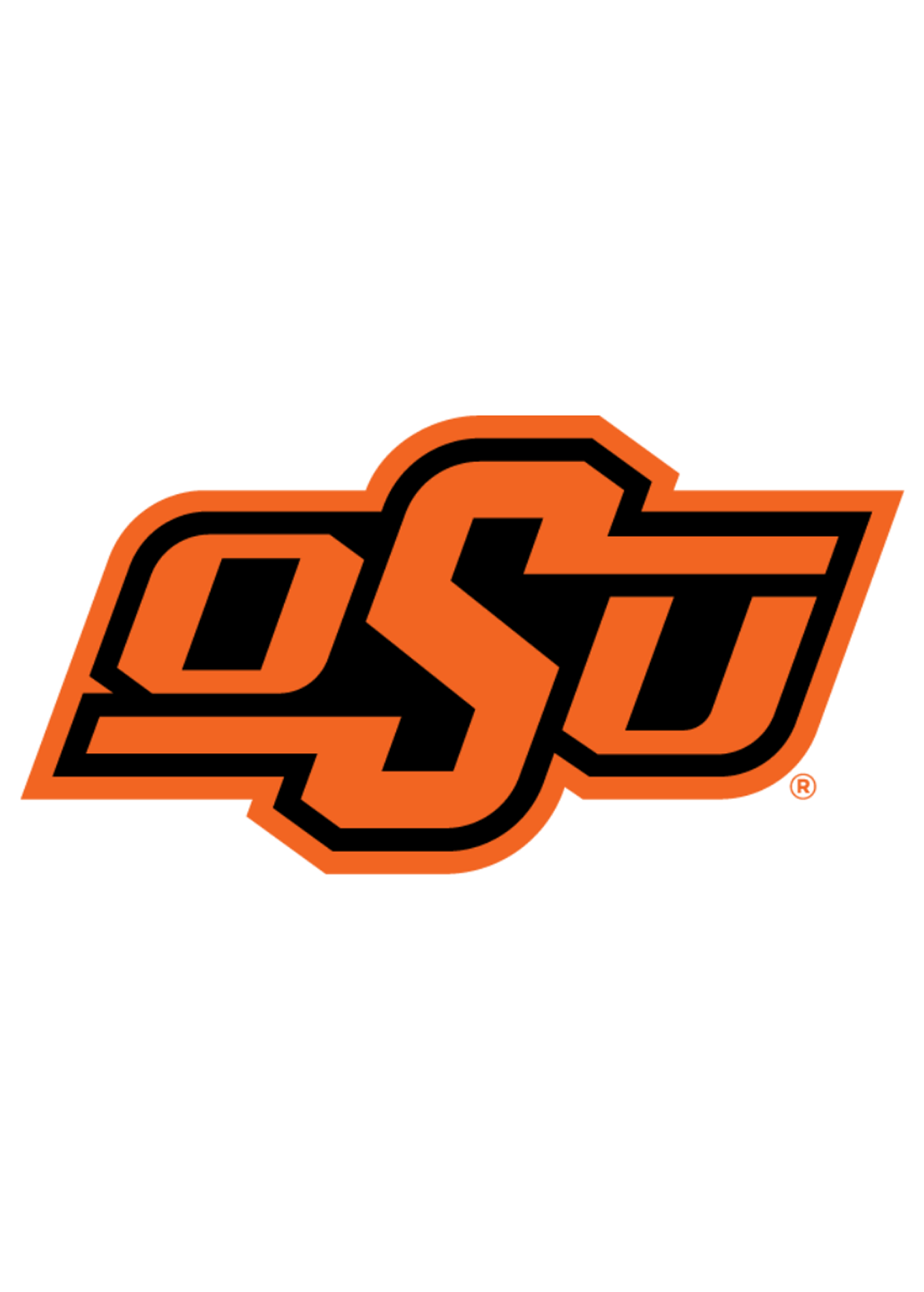
Oklahoma State University
Intelligent Score: 97.48In-state: $5,357
Out-of-state: $20,877
In-state: $5,531
Out-of-state: $5,531
SAT: 1020-1250
ACT: 21-28
Resident: $432
Non-Resident: $949
Online
Higher Learning Commission
120
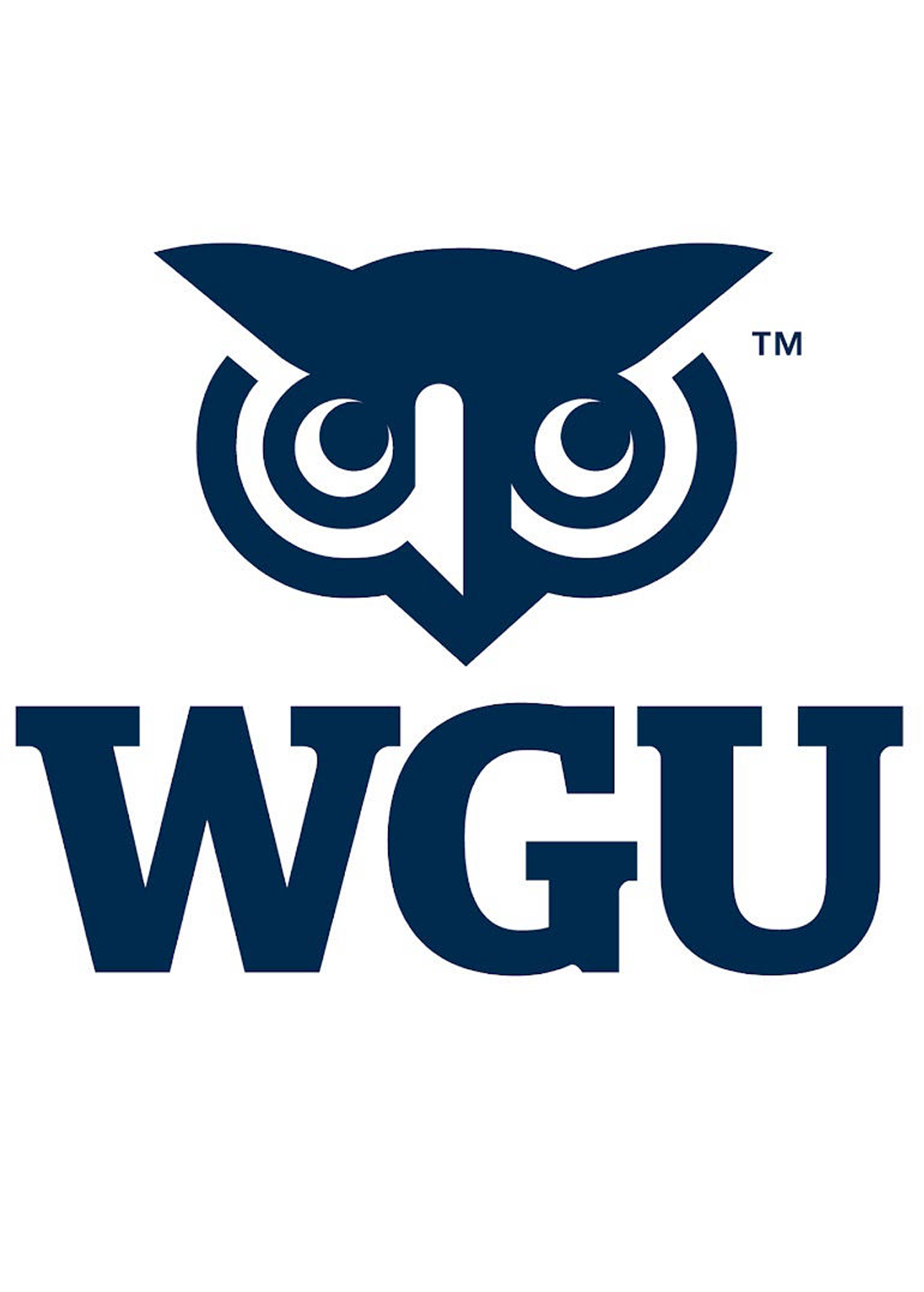
Western Governors University
Intelligent Score: 95.91In-state: $6,380
Out-of-state: $6,380
In-state: $7,500
Out-of-state: $7,500
SAT: N/A
ACT: N/A
$250 - $254
Online
Accreditation Council for Business Schools and Programs
118 - 120
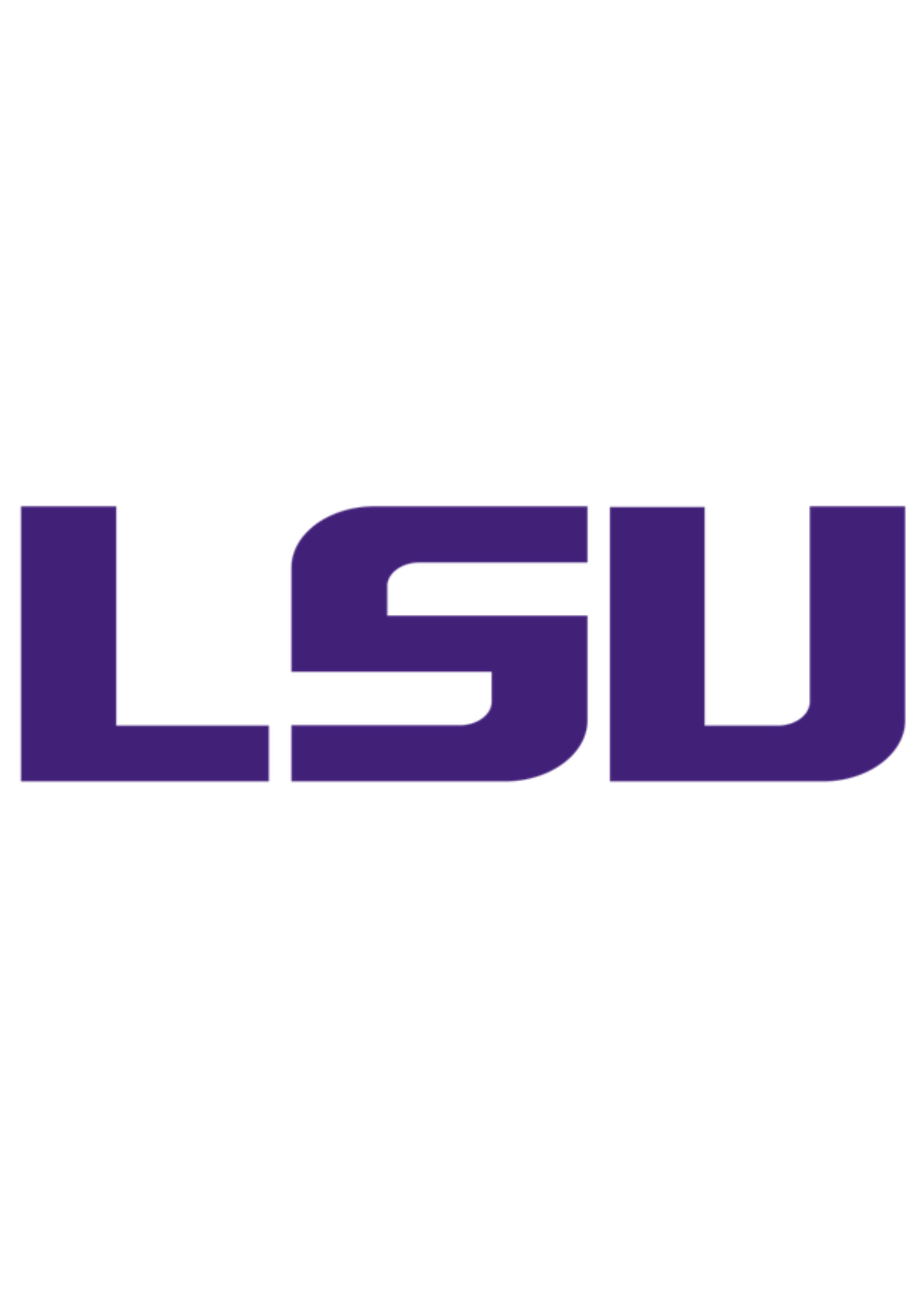
Louisiana State University
Intelligent Score: 95.24In-state: $8,038
Out-of-state: $8,038
In-state: $9,132
Out-of-state: $9,132
SAT: 1090-1300
ACT: 23-28
$399
Online
Association to Advance Collegiate Schools of Business
120
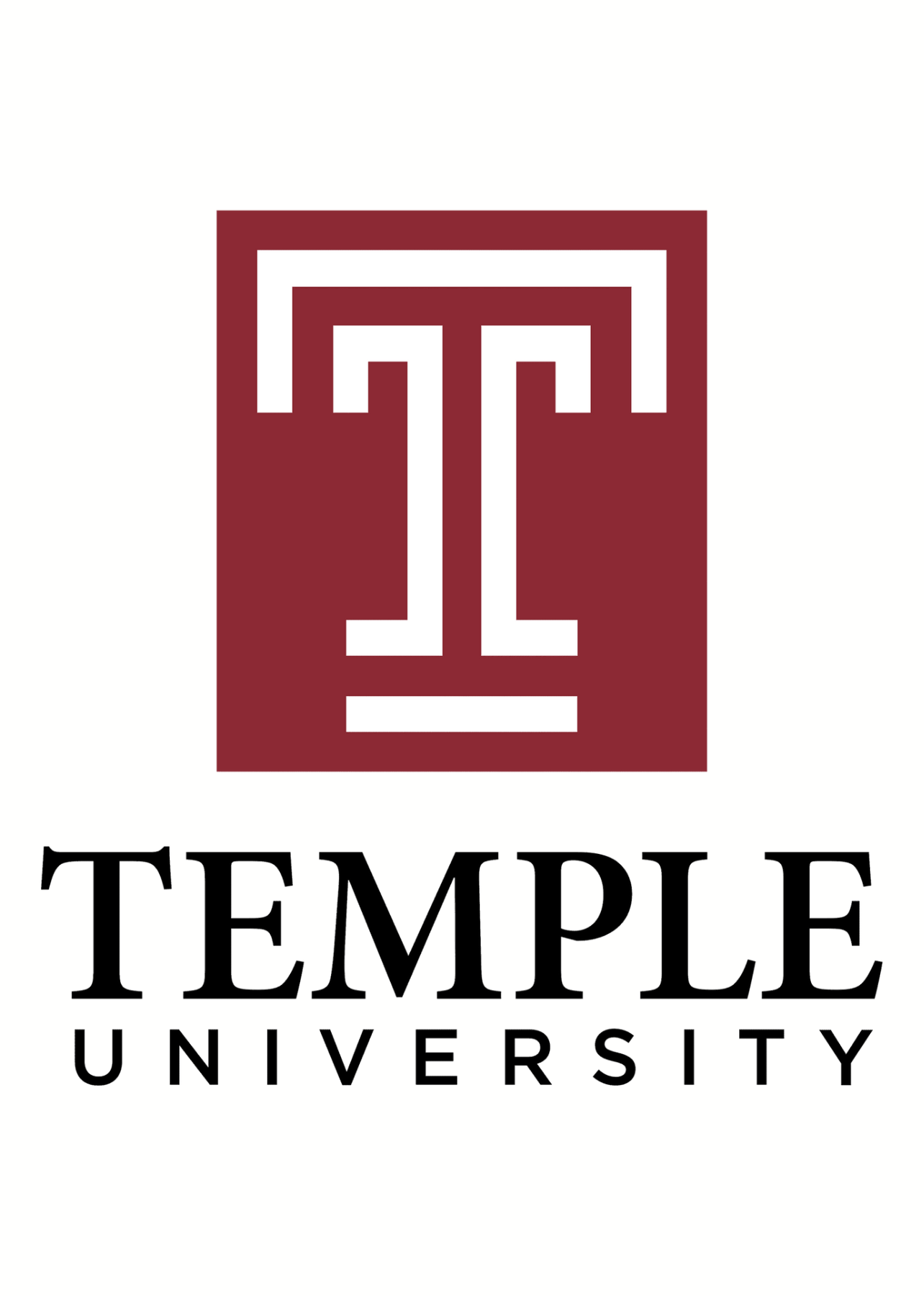
Temple University
Intelligent Score: 95.22In-state: $16,080
Out-of-state: $28,992
In-state: $16,956
Out-of-state: $16,956
SAT: N/A
ACT: N/A
$665
Online
Association to Advance Collegiate Schools of Business
124

Washington State University
Intelligent Score: 94.89In-state: $10,202
Out-of-state: $25,145
In-state: $11,781
Out-of-state: $11,781
SAT: 1020-1210
ACT: 20-26
Resident: $567
Non-Resident: $632
Online
Association to Advance Collegiate Schools of Business
120

CSU Global
Intelligent Score: 93.43In-state: $9,426
Out-of-state: $28,147
In-state: $10,520
Out-of-state: $10,520
SAT: 1070-1280
ACT: 23-29
$375
Online
Accreditation Council for Business Schools and Programs
120
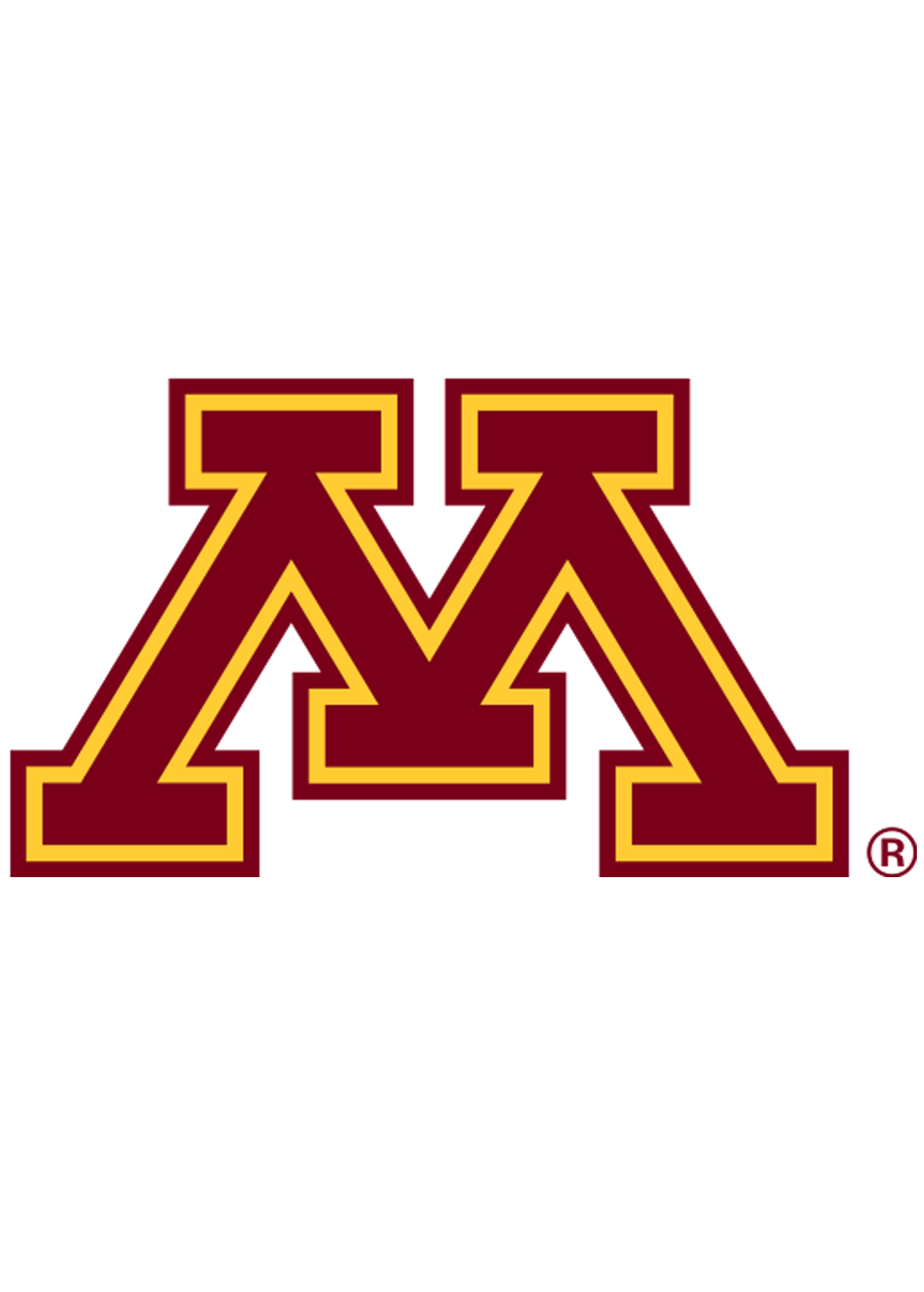
University of Minnesota
Intelligent Score: 92.72In-state: $13,318
Out-of-state: $31,616
In-state: $17,580
Out-of-state: $17,580
SAT: 1240-1460
ACT: 25-31
$441
Online, On-Campus
Higher Learning Commission
120
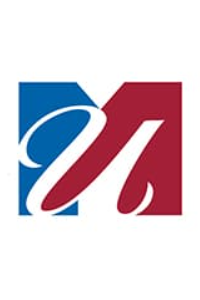
UMass Global
Intelligent Score: 92.54In-state: $63,560
Out-of-state: $63,560
In-state: $55,460
Out-of-state: $55,460
SAT: Not Required
ACT: Not Required
$500
Online
WASC Senior College and University Commission
120
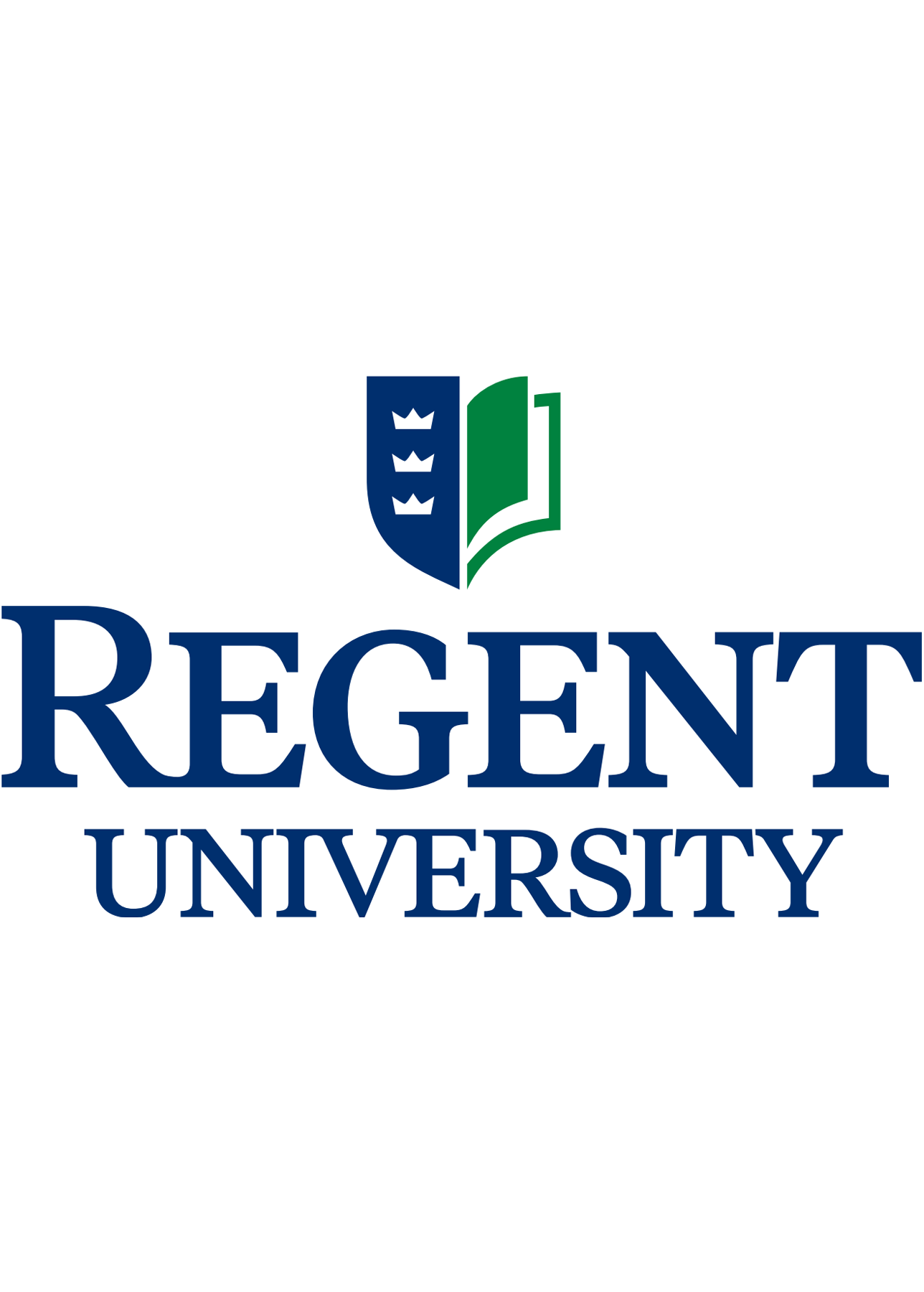
Regent University
Intelligent Score: 92.47In-state: $17,220
Out-of-state: $17,220
In-state: $15,552
Out-of-state: $15,552
SAT: 940-1220
ACT: 21-29
$395 - $450
Online, On-Campus
Accreditation Council for Business Schools and Programs
120

Liberty University
Intelligent Score: 92.15In-state: $14,791
Out-of-state: $14,791
In-state: $7,935
Out-of-state: $7,935
SAT: 1040-1250
ACT: 21-29
$390
Online
Accreditation Council for Business Schools and Programs
120

Webster University
Intelligent Score: 91.02In-state: $28,500
Out-of-state: $28,500
In-state: $13,500
Out-of-state: $13,500
SAT: 1078-1260
ACT: 20-27
$350
Online
Accreditation Council for Business Schools and Programs
120

UMass Amherst
Intelligent Score: 89.96In-state: $15,791
Out-of-state: $35,779
In-state: $14,014
Out-of-state: $14,014
SAT: 1200-1390
ACT: 27-32
$450
Online
Association to Advance Collegiate Schools of Business
120
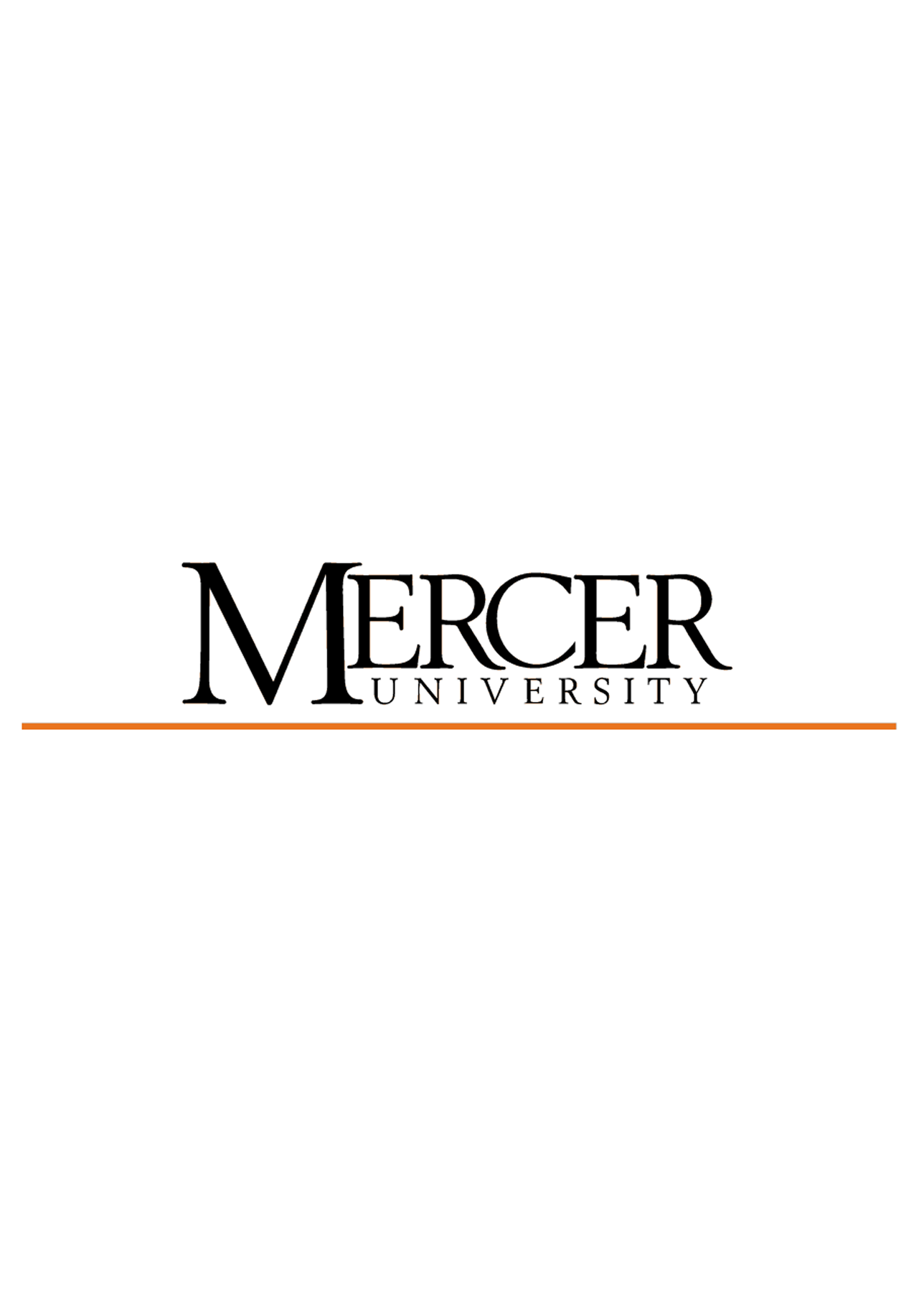
Mercer University
Intelligent Score: 88.97In-state: $28,695
Out-of-state: $28,695
In-state: $14,964
Out-of-state: $14,964
SAT: 1180-1340
ACT: 25-31
$525
Online, On-Campus
Southern Association of Colleges and Schools Commission on Colleges
120
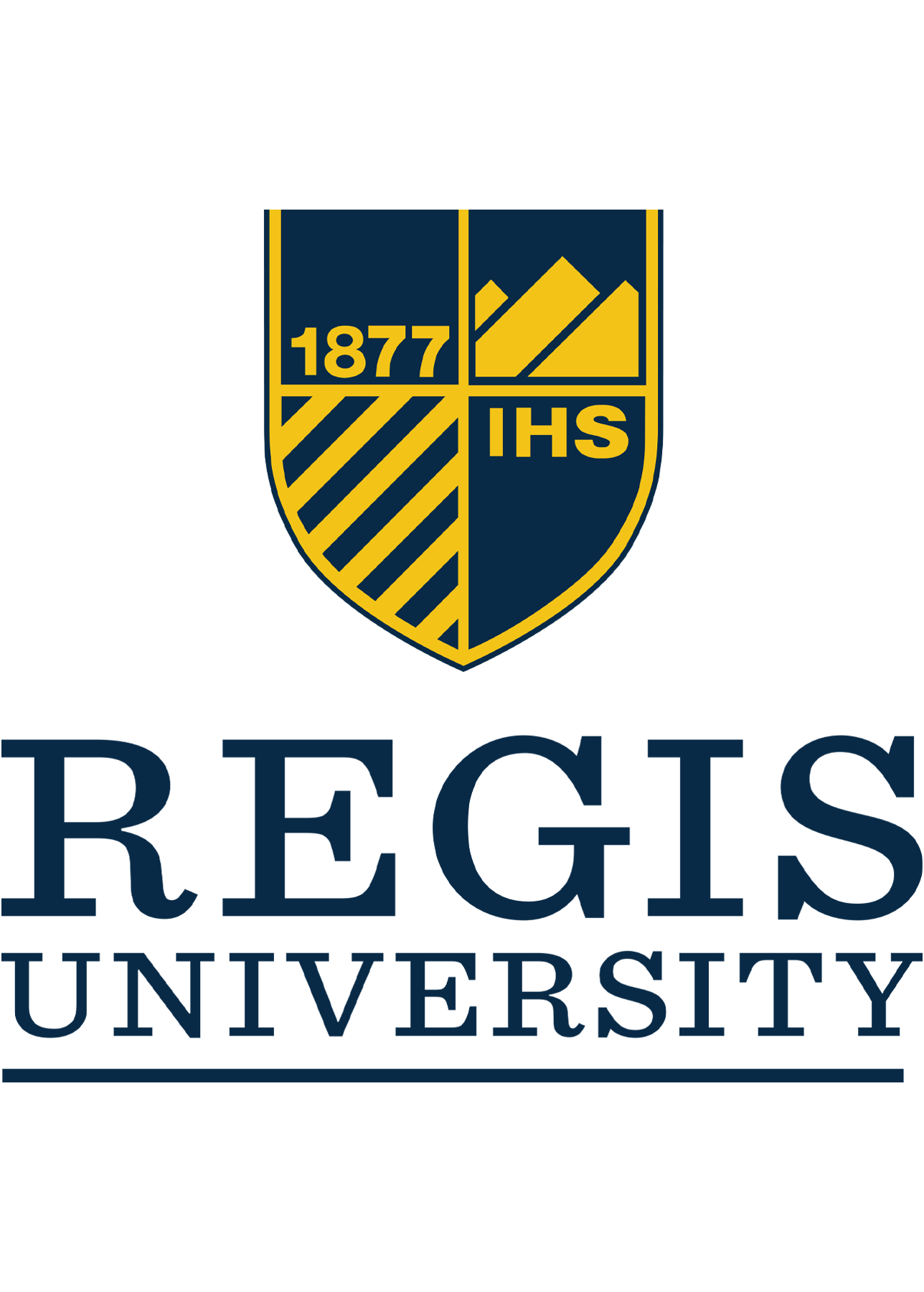
Regis University
Intelligent Score: 88.60In-state: $38,208
Out-of-state: $38,208
In-state: $14,322
Out-of-state: $14,322
SAT: 1000-1220
ACT: 21-28
$555
Online
Higher Learning Commission
120
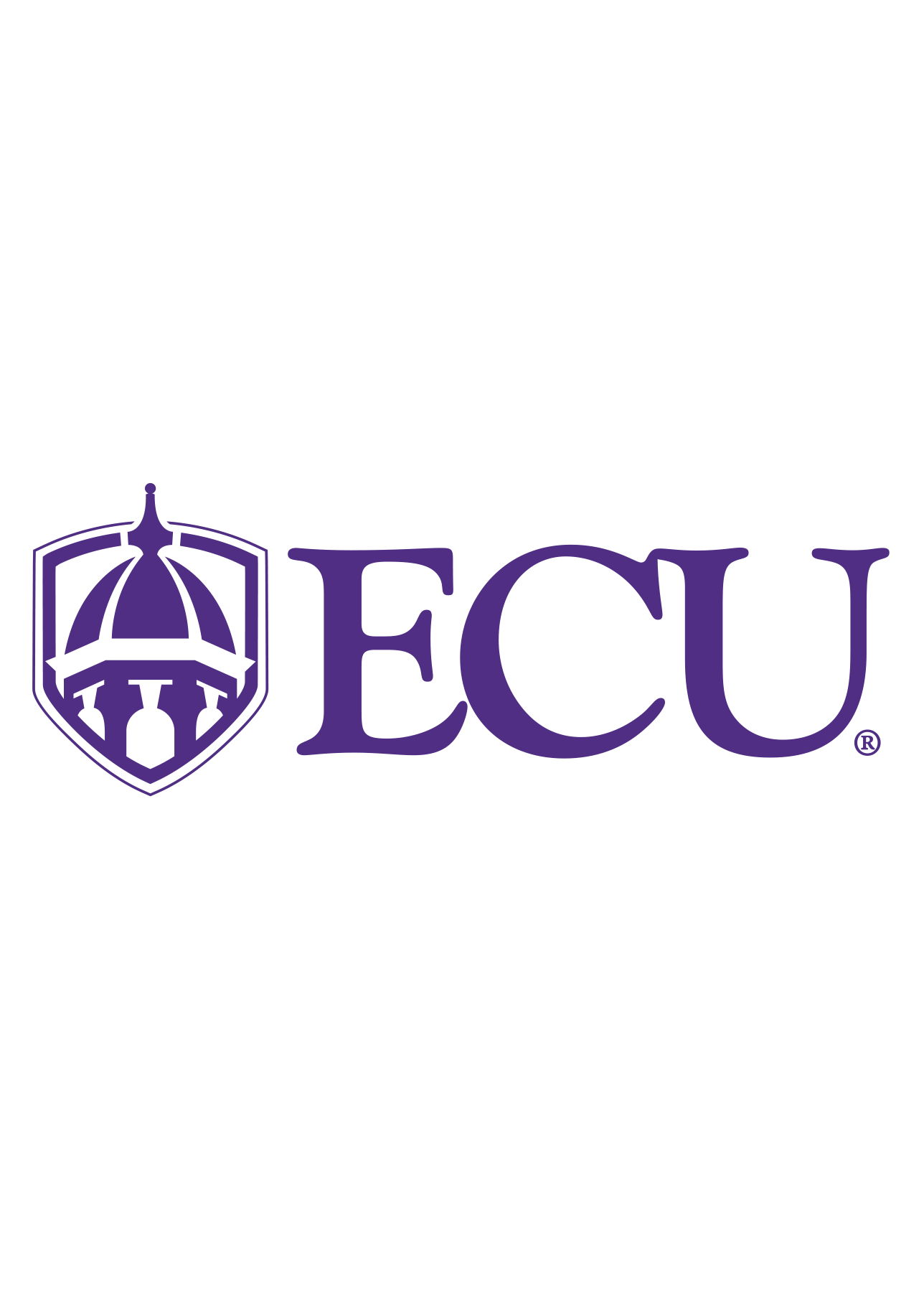
East Carolina University
Intelligent Score: 88.17In-state: $4,452
Out-of-state: $20,729
In-state: $4,749
Out-of-state: $4,749
SAT: 1020-1170
ACT: 19-24
Resident: $204
Non-Resident: $883
Hybrid
Association to Advance Collegiate Schools of Business
120

University of Wisconsin Whitewater
Intelligent Score: 87.83In-state: $9,273
Out-of-state: $37,161
In-state: $10,728
Out-of-state: $10,728
SAT: 1260-1460
ACT: 27-32
$395
Online
Association to Advance Collegiate Schools of Business
120 - 123
How to Choose an Online Marketing Degree?
Clarify your goals and priorities
If you aim for an undergraduate or graduate degree in marketing, you can ensure it’s the right fit by considering your passions, career aspirations, and strengths. “I encourage students to consider the costs, their reasons for pursuing a marketing degree, and how completing the degree would benefit them with their professional goals,” says Pickett.
It’s also important to consider how you learn best, as online learning may suit some students better than others. Says Pickett, “Students should ask themselves if an online classroom environment fits their learning style, and if so, determine what modifications they need to make in their daily lives to ensure they are successful in their program.” By reflecting on these questions, you can gauge whether online learning suits your preferences and visualize how a marketing degree aligns with your future ambitions.
Research schools and programs
Reviewing accredited programs is essential when researching schools and programs for your marketing degree. “Accreditation is important when looking at the academic requirements, standards, and quality of a program’s academic curriculum,” says Pickett. “It also factors into a student’s eligibility for federal financial aid funding.” Students should verify that their school has institutional accreditation from a recognized regional accrediting body and that the marketing program has programmatic accreditation from an agency like the Association to Advance Collegiate Schools of Business (AACSB) or the Accreditation Council for Business Schools and Programs (ACBSP).
Pickett also recommends reviewing each program’s reputation. “How reputable a program is can be based on how long it has been in existence. The longevity of a program also speaks to the quality of the program.” Carefully read student reviews and testimonials to explore this further, as these can lend valuable firsthand perspectives that can significantly impact your research.
Other factors to consider include each program’s cost, financial aid offerings, curriculum, available specializations, and networking opportunities.
Prepare for tests and applications
As you research online marketing degree programs, be sure to gather information about their application requirements and processes. This information is usually published on the program’s website, but you can also contact the school’s admissions office to clarify requirements and deadlines. If you’re applying to multiple schools, use a spreadsheet or checklist to keep track of the materials you’re submitting and due dates.
For an application to an undergraduate marketing degree program, students must typically submit the following:
- Completed application and required fees
- Official transcripts from high school and any previously attended post-secondary schools
- Letters of recommendation
- Personal statement
- Resume or CV
Some institutions might request standardized test scores like the SAT or ACT. However, an increasing number of schools are adopting test-optional policies to attract a more diverse group of applicants.
Select your program
Once you have received your acceptance letters, it’s time to decide which program you will attend. It’s an excellent time to revisit each program’s offerings to ensure it aligns with your interests and goals. Look closely at course descriptions, faculty profiles, and resources like online tutoring or library access. By thoroughly evaluating your options, you can confidently choose a program that resonates with your professional goals and ensure a fulfilling educational experience.
Determine how you’ll pay for your degree
As you’re evaluating which program you’ll select, it’s important to consider the costs associated with earning an online marketing degree. “Compare costs of different programs to determine the best return on your investment,” Pickett says. “Look at the cost of tuition, technology or distance learning fees, book costs, and any required software for the program.” Having a better idea of the overall cost will help you determine which programs will give you the best value for your investment.
Next, evaluate your financial aid options. Many schools and private organizations offer scholarships and grants to well-qualified students. These are particularly beneficial as they are forms of financial aid that don’t need to be repaid. Completing the Free Application for Federal Student Aid (FAFSA) is essential, as it determines your eligibility for federal student loans, which offer lower interest rates and flexible repayment terms than private loans.
For students who plan on working while earning an online marketing degree, employer tuition assistance benefits may also be an option to help pay for school. Consult with your HR department or benefits coordinator to find out if your employer offers any kind of financial reimbursement for successfully completing college courses.
What Can I Do With an Online Marketing Degree?
With an online marketing degree, you can explore various career opportunities in both traditional and digital capacities. Whether holding a bachelor’s or master’s degree, you’ll find excellent job prospects across industries. “Earning a degree in marketing is very beneficial,” says expert Michelle Pickett. “This degree teaches individuals how to be effective leaders in various business, marketing and sales.”
Graduates can become marketing coordinators, digital marketing specialists, brand managers, market research analysts, or marketing managers leading strategies and teams. From crafting compelling campaigns to analyzing consumer trends, your skills will drive business growth and customer engagement, assisting companies in taking their products and services to the next level.
While a bachelor’s degree in marketing is sufficient for most entry- and mid-level marketing jobs, individuals may choose to pursue graduate study, such as an MBA in marketing or a master’s in digital marketing, to help them advance into leadership and management positions.
Career outlook
- Advertising, promotions, and marketing managers: Analyze market trends, consumer behavior, and competitor activities to make strategic decisions. Additional duties include developing comprehensive marketing plans, setting goals, allocating budgets, and leading teams to execute campaigns effectively.
-
- Median annual salary: $156,580
- Projected employment growth (through 2032): 6%
- New jobs projected: 34,000 per year
- Market research analysts: Gather and analyze data about consumer preferences, market trends, and competitors by designing surveys, conducting interviews, and using statistical techniques to interpret data. Their insights help businesses make informed decisions about their products, services, and marketing strategies.
-
- Median annual salary: $74,680
- Projected employment growth (through 2032): 13%
- New jobs projected: 94,600 per year
- Public relations specialists: Manage a company’s image and communication with the public and media, with responsibilities including writing press releases, coordinating media interviews, and handling crisis communication.
- Median annual salary: $66,750
- Projected employment growth (through 2032): 6%
- New jobs projected: 25,800
Online Marketing Degree Program Frequently Asked Questions
How much does an online marketing degree cost?
The cost of an online marketing degree varies based on several factors. For the most accurate information about the cost of a program, consult with the school’s financial aid office.
As of the 2022-23 academic year, the average annual tuition for a four-year public institution was $9,750, according to the National Center for Education Statistics (N.C.E.S.). The average annual tuition at a four-year private college was $38,421 for that same period. Tuition tends to be higher at private colleges because they don’t receive state and federal funding to subsidize operations and rely more heavily on tuition as a source of revenue.
Another factor to consider for public university students is residency status. Students at public colleges fall into two categories: in-state and out-of-state residents. In-state students typically benefit from lower tuition rates as they contribute to the state’s funding through taxes. Conversely, out-of-state students often face higher tuition fees because they pay taxes in a different state. However, public colleges increasingly offer in-state tuition rates to online students to make programs more accessible.
How long does it take to earn an online marketing degree?
Undergraduate students can typically complete a bachelor’s in marketing within four years of full-time study, covering foundational business and marketing courses. However, many online programs cater to part-time students, as part-time enrollment allows individuals to balance education with work or other responsibilities. Studying part-time can extend the completion timeline but is generally better for working professionals who need flexibility.
Students who have previously earned college credits at a different school or program may want to investigate degree completion programs. These programs allow students to apply a significant number of credits towards their marketing degree, allowing them to complete their program in as little as 1-2 years.
Is a marketing degree worth it?
Pursuing a marketing degree holds considerable value as the business landscape prioritizes advertising, promotion, and digital marketing. “A marketing degree is a great option for someone interested in learning more about the business of selling or advertising products, goods, and services,” Pickett says. “Marketing is a versatile degree that can be used in various professional industries including media, nonprofits, education, and government.”
One such profession includes the in-demand occupation of market research analyst. This career is expected to grow by an impressive 13% by 2032, leading to over 94,000 job openings. This growth is attributed to the increasing reliance on data and market insights for informed decision-making. Additionally, fundraising positions are projected to increase by 5% through 2032, offering a rewarding avenue for those with a marketing background.
From a financial perspective, a marketing degree’s return on investment (R.O.I.) is mainly positive. The weekly median earnings for individuals with bachelor’s degrees is $1493, compared to $1058 for those with an associate degree and $992 for those without a degree.
Considering these factors, an online marketing degree is a wise investment. It aligns with the dynamic job market’s needs and provides a strong R.O.I. in terms of both fulfilling career prospects and financial stability.
Read More about Online Marketing Degrees
Compare School Options
Related Degrees
- Healthcare Management
- Economics
- Organizational Leadership
- Information Technology
- Human Resources
- Public Policy
- Business Management
- Sustainability
- Taxation
- Hotel and Restaurant Management
